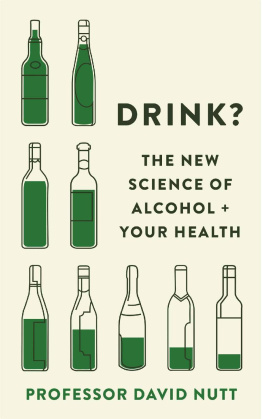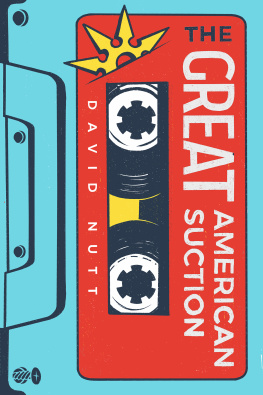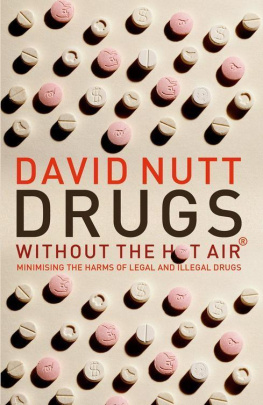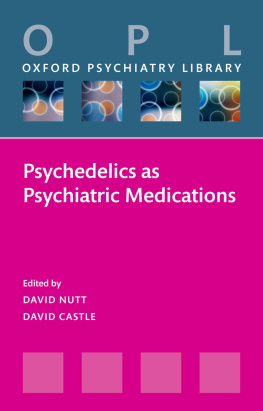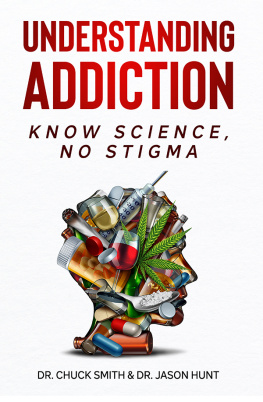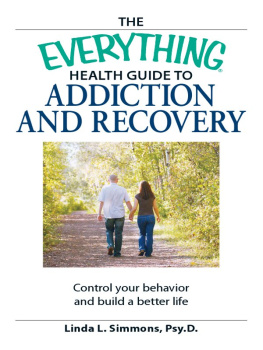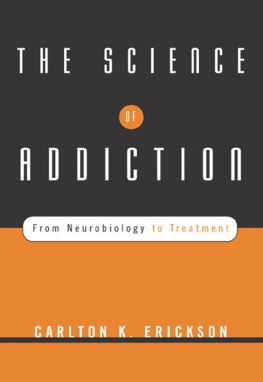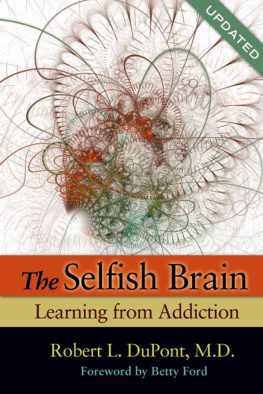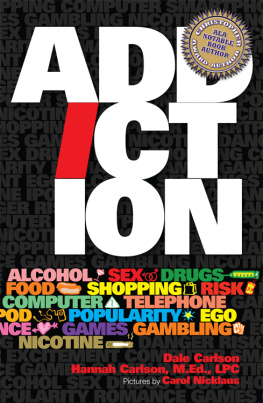OPL
OXFORD PSYCHIATRY LIBRARY

Addiction
OPL
OXFORD PSYCHIATRY LIBRARY

Addiction
Professor David J. Nutt
The Edmond J Safra Chair in Neuropsychopharmacology,
Centre for Neuropsychopharmacology,
Division of Brain Sciences,
Department of Medicine,
Imperial College London
United Kingdom
Dr Liam J. Nestor
Centre for Neuropsychopharmacology,
Division of Brain Sciences,
Department of Medicine,
Imperial College London
United Kingdom


Great Clarendon Street, Oxford, OX2 6DP,
United Kingdom
Oxford University Press is a department of the University of Oxford.
It furthers the Universitys objective of excellence in research, scholarship,
and education by publishing worldwide. Oxford is a registered trade mark of
Oxford University Press in the UK and in certain other countries
Oxford University Press 2013
The moral rights of the authors have been asserted
First Edition published in 2013
Impression: 1
All rights reserved. No part of this publication may be reproduced, stored in a retrieval system, or transmitted, in any form or by any means, without the prior permission in writing of Oxford University Press, or as expressly permitted by law, by licence or under terms agreed with the appropriate reprographics rights organization. Enquiries concerning reproduction outside the scope of the above should be sent to the Rights Department, Oxford University Press, at the address above
You must not circulate this work in any other form and you must impose this same condition on any acquirer
Published in the United States of America by Oxford University Press 198 Madison Avenue, New York, NY 10016, United States of America
British Library Cataloguing in Publication Data
Data available
Library of Congress Control Number: 2013937072
ISBN 9780199685707
Printed in the UK
by Bell & Bain Ltd, Glasgow
Oxford University Press makes no representation, express or implied, that the
drug dosages in this book are correct. Readers must therefore always check
the product information and clinical procedures with the most up-to-date
published product information and data sheets provided by the manufacturers
and the most recent codes of conduct and safety regulations. The authors and
the publishers do not accept responsibility or legal liability for any errors in the
text or for the misuse or misapplication of material in this work. Except where
otherwise stated, drug dosages and recommendations are for the non-pregnant
adult who is not breastfeeding.
Links to third party websites are provided by Oxford in good faith and
for information only. Oxford disclaims any responsibility for the materials
contained in any third party website referenced in this work.
Contents
Substance addiction is conceived to involve a loss of self-control. Despite their best efforts and expressed preferences to remain abstinent, substance addiction populations often appear incapable of exerting sufficient control over their substance urges, their substance-seeking and substance-taking behaviours. The origins of substance addiction appear to be related to the long-term pharmacological effects of substances on an already, potentially genetically compromised set of neural circuits in the brain. There are credible theories regarding the initiation of substance abuse (e.g. a reward deficiency syndrome, impulsivity/impaired cognitive control, stress) whose antecedents likely involve interactions between several neurotransmitter systems (e.g. dopamine, endorphins, GABA, glutamate) in the brain. This appears to be supported, to some degree, by the potential efficacy of some pharmacotherapies (e.g. agonists/antagonists at dopamine, endorphin, GABA, and glutamate receptors) that have been shown to increase the likelihood of substance abstinence and prevent relapse. Further research is required, however, in an attempt to fully define the neurochemistry of important behavioural components of substance addiction (e.g. craving, impulsivity) that feature prominently in substance use disorders, particularly with respect to substance relapse after significant periods of protracted abstinence.
The following volume will attempt to inform clinicians and other healthcare professionals about some of the more fundamental psychological, neurobiological, and pharmacological concepts that are applicable to the treatment of substance abuse and addiction. The following volume will place particular emphasis on reporting and discussing the seminal findings of human neuroscience research in substance addiction and clinical trials in different substance addiction populations.
David J. Nutt
Liam J. Nestor
approximately |
beta |
% | percent |
equal to or less than |
5-HT | 5-hydroxytryptomine |
A118G | arginine (A) to glycine (G) substitution at position 118 of exon 1 |
A&E | Accident and Emergency |
ACG | anterior cingulate gyrus |
ADHD | attention deficit hyperactive disorder |
AMPA | -amino-3-hydroxy-5-methyl-4-isoxazolepropionic acid |
Amyg | amygdala |
ARS | Alcohol Rating Scale |
ATP | adenosine triphosphate |
AUD | alcohol-use disorder |
BPND | parametric binding potential |
BrAC | breath alcohol concentration |
C-11 | carbon 11 |
Ca2+ | calcium |
cAMP | cyclic adenosine monophosphate |
CB1 | cannabinoid 1 receptor |
CEQ | Cocaine Effects Questionnaire |
CI | confidence interval |
Cl | chloride |
CIWA-Ar | Clinical Institute Withdrawal Assessment for Alcohol-revised |
DA | dopamine |
DALY | disability-adjusted life-year |
DAT | dopamine transporter |
DCS | D-cycloserine |
DIAZ | diazepam |
DLPFC | dorsolateral prefrontal cortex |
dOR | delta opioid receptor |
D1R | dopamine 1 receptor |
D2R | dopamine 2 receptor |
DS | dorsal striatum |
DXM | dextromethorphan |
fMRI | functional magnetic resonance imaging |
g | gram |
GABA | gamma-aminobutyric acid |
Next page

